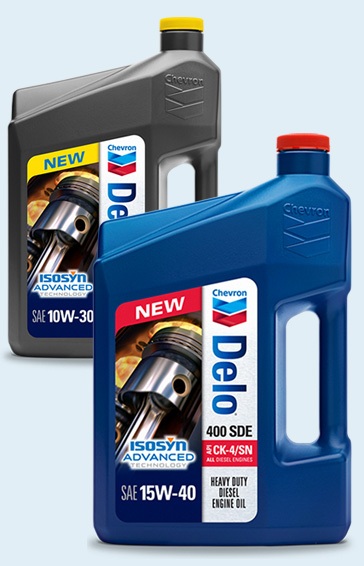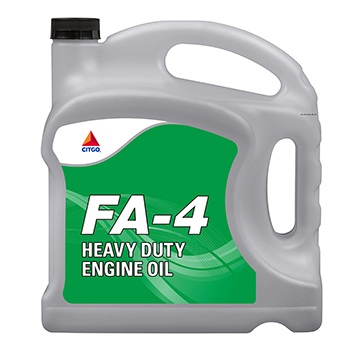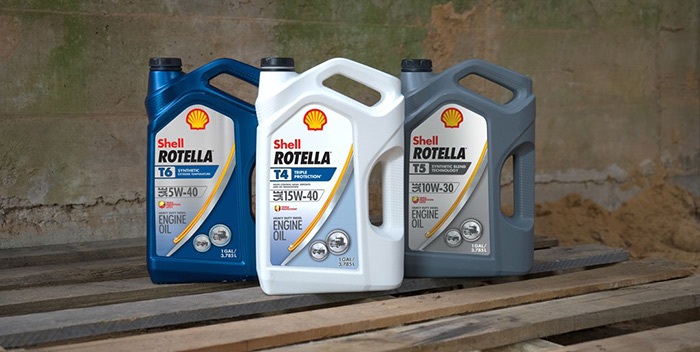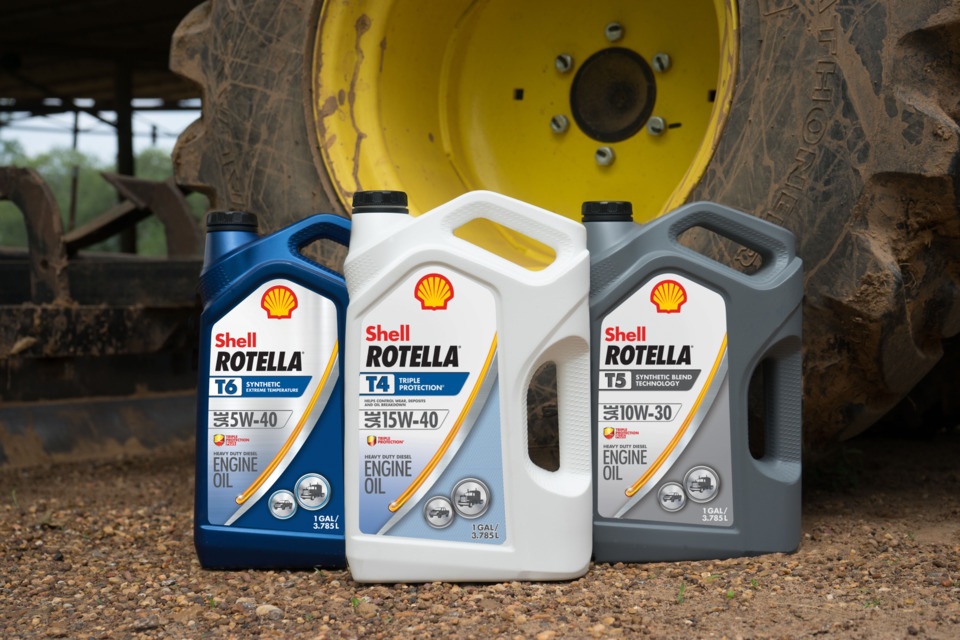A year ago, for the first time, American Petroleum Institute (API) started licensing two different heavy duty diesel engine oils. CK-4 oil is the new backward-compatible standard, designed to replace CJ-4. A new FA-4 oil category was designed to offer a lower viscosity that performed under stressful conditions to help engine makers meet fuel efficiency standards.

Delco FA-4 & CK-4 Oils
CK-4 adoption is going largely as expected, but very few fleets are using FA-4 yet because very few engine makers so far are recommending it.
Today there are nearly to 600 licensed CK-4 oils and about 80 FA-4 oils, according to Kevin Ferrick, senior manager of API’s Engine Oil Licensing and Certification System.
CK-4 and FA-4 both have to meet the same performance standards in terms of things such as oxidation control, preventing engine wear, and protecting the after-treatment system. They’re designed to be more robust and resistant to oxidation compared to their CJ-4 predecessors, said Brian Humphrey, technical liaison for Petro-Canada Lubricants.
“This may mean that, with proper oil filtration, longer oil drain intervals may be achieved. They are also designed to improve resistance to aeration and have increased shear stability, which will provide enhanced performance and greater hardware protection over time,’’ Humphrey said.
Enjoying our insights?
Subscribe to our newsletter to keep up with the latest industry trends and developments.
Stay Informed
But FA-4 is a different viscosity, and it’s limited to XW-30 grades such as 10W-30 and 5W-30. And that’s to offer better fuel economy.
Steve Phillips is president of Allied Oil and Tire in Omaha, Nebraska, a 59-year-old business with significant focus on the heavy duty commercial truck market. Nearly all of its customers have transitioned to CK-4, but none to FA-4.
“We spent about a year with the guidance of our vendors making sure we educated our customers on what that difference was,” Phillips said. “To me it speaks volumes as far as the fuel efficiency value that’s provided in moving to lower viscosities, which is something that some people are very uncomfortable with. But as people are seeing their trucks delivered factory-filled with 10W-30, they’re realizing these engines are tighter and more capable of handling the lower-viscosity oils.’’
Shell Rotella HDFA-4 & CK-4 Heavy Duty Engine Oils
CK-4, FA-4, and viscosity
Adding to the confusion is that while you could have the same viscosity rating of 10W-30 in both CK-4 oil and FA-4 oil, the viscosities are not really the same. That’s because to meet the new FA-4 oil specs, oils must have a certain “high-temp-high-shear’’ viscosity rating that’s different from the basic SAE viscosity numbers.
“The important thing to know is a 10W-30 FA-4 oil is in essence a different viscosity than a 10W-30 CK-4 oil,” Ferrick said. “The standards defining an FA-4 are in a different high temp-high shear viscosity range,. The viscosity measurement, the limit, is different than the limit for a CK-4 oil. The net effect is the FA-4 10W-30 is a lower viscosity at the 30 range. The FA-4 10W-30 is in essence a lighter oil.
“The important thing to note is engines are designed with a certain viscosity in mind. So if a CK-4 10W-30 is recommended, that’s the one you use, not the FA-4 10W-30, and vice versa.’’

Citgo FA-4 Heavy Duty Engine Oil
FA-4: F is for fuel efficient
Although engine makers are the ones who asked API and oil makers to come up with an updated oil category for heavy duty diesels, in part to address GHG-fuel economy standards, very few so far have approved the use of FA-4.
“I think they asked for it and now they have it and now they’re going to have to decide how they’re going to use it’’ to help reduce GHG emissions, Ferrick said.
“On the FA-4 side I think the market is not quite there yet,” says Stede Granger, Shell technical services manager. “Uptake is a little slow, understandably. It’s a brand new viscosity grade and some engine makers aren’t even accepting it.’’
Detroit Diesel allows the most flexibility from a backward-compatibility standpoint, allowing the FA-4 oils to be used as far back as the 2010 model year.
At the other end of the scale, earlier this year, Ford told customers they need to avoid most new CK-4 or FA-4 oils and instead use a new Motorcraft diesel engine oil for the Power Stroke diesels used in its Super Duty trucks.
While there already are about 600 CK-4-licensed products, currently there are still 1,600 CJ-4 licensed products, Ferrick said. “So CK-4 has along way to go to catch up with that.’’
For fleets that have been slow to change over, Ferrick said CK-4 is an improvement over CJ-4.
“CJ-4 has been around for about 10 years, so the standard itself relies on engine tests that were put in place to measure CJ-4,” he said. “CK-4 features two new engine tests that are more reflective of current technology. CK-4 is going to provide enhanced protection against oil oxidation, viscosity loss due to shear, advanced protection against oil aeration, catalyst problems, particulate filter blocking, engine wear, and piston deposits.”
Cigala said the biggest misconception he sees surrounds viscosity.
“People think CK-4s are all 15W-40 and that you have to go to the FA-4 to get a lower viscosity. Not true,’’ Cigala said. “In fact, you can get 10W-30 viscosity in either CK-4 or FA-4 oils. So even though there’s not a big move yet to FA-4 oils, some fleets are looking at lower viscosity CK-4 oils, especially 10W-30s, to improve fuel economy.’’






















